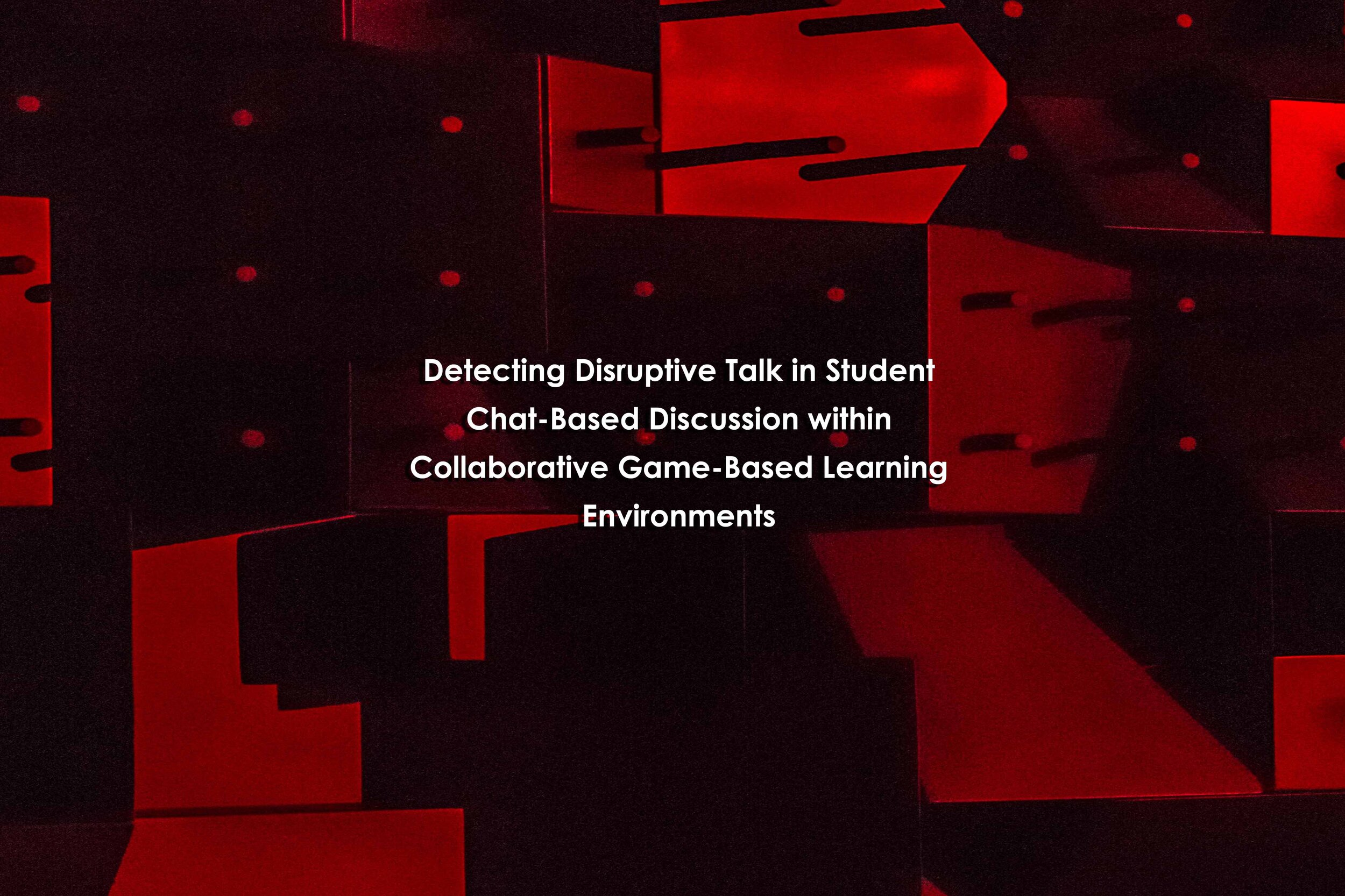Detecting Disruptive Talk in Student Chat-Based Discussion within Collaborative Game-Based Learning Environments
Detecting Disruptive Talk in Student Chat-Based Discussion within Collaborative Game-Based Learning Environments
Detecting Disruptive Talk in Student Chat-Based Discussion within Collaborative Game-Based Learning Environments
Kyungjin Park,Hyunwoo Sohn, Bradford Mott, Wookhee Min, Asmalina Saleh, Krista Glazewski, Cindy Hmelo-Silver, James Lester
Abstract
“Collaborative game-based learning environments offer significant promise for creating engaging group learning experiences. Online chat plays a pivotal role in these environments by providing students with a means to freely communicate during problem solving. These chat-based discussions and negotiations support the coordination of students’ in-game learning activities. However, this freedom of expression comes with the possibility that some students might engage in undesirable communicative behavior. A key challenge posed by collaborative game-based learning environments is how to reliably detect disruptive talk that purposefully disrupt team dynamics and problem-solving interactions. Detecting disruptive talk during collaborative game-based learning is particularly important because if it is allowed to persist, it can generate frustration and significantly impede the learning process for students. This paper analyzes disruptive talk in a collaborative game-based learning environment for middle school science education to investigate how such behaviors influence students’ learning outcomes and varies across gender and students’ prior knowledge. We present a disruptive talk detection framework that automatically detects disruptive talk in chat-based group conversations. We further investigate both classic machine learning and deep learning models for the framework utilizing a range of dialogue representations as well as supplementary information such as student gender. Findings show that long short-term memory network (LSTM)-based disruptive talk detection models outperform competitive baseline models, indicating that the LSTM-based disruptive talk detection framework offers significant potential for supporting effective collaborative game-based learning through the identification of disruptive talk”.
Reference
Park, K., Sohn, H., Mott, B., Min, W., Saleh, A., Glazewski, K., ... & Lester, J. (2021, April). Detecting disruptive talk in student chat-based discussion within collaborative game-based learning environments. In LAK21: 11th International Learning Analytics and Knowledge Conference (pp. 405-415). https://dl.acm.org/doi/10.1145/3448139.3448178
Keywords
Learning environments, students, education

